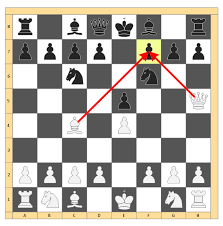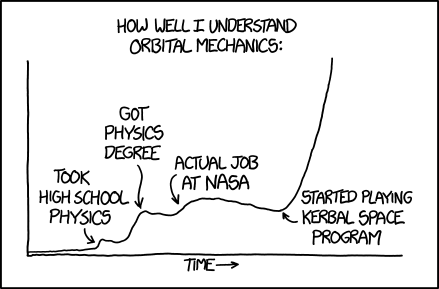Video Games are the Future of Education
Published: June 21, 2020. Substack version
My real education as a teenager was:
- Books I chose to read myself
- Learning to program computers (taught myself)
- Video games (found them myself)
- Maths (school)
#1-3 happened despite formal schooling, not because of it, something Paul Graham says here:
This suggests the following conclusion:
1. The things you learn by yourself stick; the things that are “taught” to you do not stick.
The fundamental principle of education is to give students an environment, and tools, where they can make discoveries themselves. This requires space, and time, and autonomy.
Students also need to be able to choose what they learn and how they learn it, something that modern rigid curriculums and prison-like school environments do not permit.
However, I would go farther than this and say:
2. Video games provide a much deeper understanding of most subjects than classical education does.
I play a fair amount of chess (not well) and one thing you develop after playing a lot of chess is that you start to see “lines of force” on the board, e.g. the force a bishop exerts on an enemy pawn; and start to sense “weak points” in the opponent’s structure in a very physical way, in the way that you can sense the shakiest part of a Jenga tower in the physical world.

This is the classical “scholar’s mate” position. As soon as you move your bishop to c4, you just “feel” that the black f-pawn is under pressure. The force exerted by the white bishop and Queen on the f-pawn can be felt as a weakness in the body of a good chess player.
Developing this touch-based, proprioceptive “sense” of a thing is often key to a really deep understanding of it. When you understand something very well it’s almost as though you can play around with it using all your senses — touch, feeling, space.
Feynman:
“If you can’t see it, it’s hard to explain why—but if you try to hold something up with a ladder, say, and you get the ladder directly under the thing, it’s easy to keep the ladder from sliding out. But if the ladder is leaning way waaaaay out, so that the far end of the ladder is only a very tiny distance from the ground, you’ll find a nearly infinite horizontal force is required to hold the thing up at a very slight angle. Now, all these things you can feel. You don’t have to feel them; you can work them out by making diagrams and calculations, but as problems get more and more difficult, and as you try to understand nature in more and more complicated situations, the more you can guess at, feel, and understand without actually calculating, the much better off you are!”There are stories of Feynman rolling around on the floor, eyes closed in concentration, simulating physical processes with his body. His biographer, James Gleick, writes:
Intuition was not just visual but also auditory and kinesthetic. Those who watched Feynman in moments of intense concentration came away with a strong, even disturbing sense of the physicality of the process, as thuogh his brain did not stop with the gray matter but extended through every muscle in his body. A Cornell dormitory neighbor opened Feynman’s door to find him rolling about on the floor beside his bed as he worked on a problem....In part the process of scientific visualization is a process of putting onself in nature: in an imagined beam of light, in a relativistic electron.
There is also the famous story of Einstein at 16 imagining chasing after a beam of light, the seed of special relativity.
When you really understand something, it is almost always accompanied by this deep tacit “high-dimensional” grasp of the thing. But:
3. Schooling mostly fails at giving you this deep understanding.
Most adults have the incredibly painful experience of realizing that after 15 years of formal schooling we still can’t answer very basic questions about everyday scientific questions (e.g. why the sky is actually blue) and have to go look them up.
Most of the things I was “taught” at school simply didn’t stick. We were just told that an atom consisted of protons/neutrons/electrons, but we had no idea how anybody had figured this out (or, for that matter, why this was important). I have painful memories of studying the “plum pudding model” (aka Rutherford model) of atoms at school.
It took humans thousands of years to really figure out that reality was made of atoms, and understand why this was true. Reality has a surprising amount of detail. The deeper you get into these questions, the more you realize that nothing is simple. But school didn’t leave us room to dive deep into these questions; we had to pass exams, which meant dutifully learning to calculate molecular weights, etc, without actually understanding a thing.
The net result is: no understanding, years of waste.
But this is entirely preventable. Consider if Pokemon had been “taught” in the usual way:
Playing with a simulation (i.e. the Pokemon games) gets you this deep, “bone-level” understanding very quickly.
Thus, I believe that:
4. Video games will become a core component of education.
This sounds absurd, but consider that simulations are already used widely for learning:
- Kerbal Space Program is notorious for turning its players into experts on orbital mechanics
- Flight simulators and combat simulators are used to train pilots and army personnel
- The game “Factorio” teaches you about capitalism, production, and the economy
- Programming environments are simulations of the “universe” of that programming language, with fast feedback loops (write code -> debug)

(a) a simulation of reality
(b) with fast feedback loops.
Learning is just the act of engaging with an external thing and performing many conjecture/criticism loops, forming conclusions, and building on them to form a body of knowledge.
So it makes sense that video games would be the primary educational environment of the future: they are the best way we have of (a) creating simulations of reality (b) with fast feedback loops (c) accessible at low cost.
(By the way, this is true not just for abstract concepts such as orbital mechanics, but also for ethical traits. e.g. my understanding of heroism is to this day shaped by games like Final Fantasy and Metal Gear Solid. This also helps explain why reading fiction is valuable: you can gain “bodily knowledge” about despair by reading Dostoyevsky, about jealousy by reading Swann’s Way, etc.)
5. Where games mostly fall short is that they’re not that transferable to the real world. The skills you learn are highly specific to that game. This will change.
Most chess knowledge is specific to chess; what you learn from getting good at chess is not really transferable to real life, it instead consists of highly technical understandings of various chess positions.
This is because chess is not an accurate model of reality. The lessons you learn from chess are generalizable only at a high level (e.g. a bad plan is better than no plan).
But if you have games that are (a) fun and (b) accurate for some aspects of reality, such as KSP or Factorio, you do get learning that is real and transferable. The challenge is in making games that satisfy both constraints.
There are not that many examples of this just yet, but I believe there will be more in the future. So why hasn’t this happened already? I think the answer is:
6. It is currently too hard to make video games. Making it easier to create video games will massively increase the supply of good video games and cause a gradual revolution in education.
One thesis of the internet that always stuck with me comes from Evan Williams, who founded Twitter/Blogger/Medium. He said that the best way to create a giant internet company is to take something people want to do and make it 10x easier.
This was the core insight behind all of his companies. People already want to be creative, they want to make music, they want to make video games, they want to write (clearly!), they want to publish things online, but the barriers to entry for most of these things is currently too high.
"We often think of the internet enables you to do new things," Williams said. "But people just want to do the same things they’ve always done."“Making things easier to create” is a mega-trend of the internet era:
(...)
"Here’s the formula if you want to build a billion-dollar internet company," he said. "Take a human desire, preferably one that has been around for a really long time...Identify that desire and use modern technology to take out steps." (link)
- Blogger/Medium/Wordpress make it easy for anyone to write on the internet;
- Substack makes it easy for people to set up newsletters;
- YouTube and TikTok make it easy to make videos;
- Ableton makes it easier to create music; etc.
Another insight is that making things easier has nonlinear effects. Making something 10x easier can cause 1000x more of that thing to happen. Hence the explosion of online creativity you see on YouTube, with chess, Minecraft, math videos, Khan Academy, Twitchstreams, Soundcloud, etc; you remove a small bit of friction and get a large result.
This trend has a long way to go, though. Making video games is colossally hard and expensive; you need to be a crazy genius indie game developer with ultra-high risk tolerance, or else a mega-corporation like Unity or Steam or Valve, to do it. Video games haven’t yet had their “creator revolution”.
This will not always be the case. Large companies will be built that make it easier for anyone to make videos, or video games, or podcasts, and so on, unleashing a ton more latent creativity. This will make the idea of video games for education seem less and less insane over time, as better games get built to help students understand important things like Newtonian mechanics, maths, chemistry, architecture etc. on an intuitive level that books and teachers rarely manage to reach.
Some caveats:
First, I suspect that optimizing directly for ‘being educational’ is a bad idea for video game creators. Most video games I’ve played that tried that were boring. It seems better to optimize for some combination of fun and complexity.
Second, this post is not a call to “gamify” education or to slap gaming dynamics on top of education as an after-thought. That won’t work.
One last thought: this is also why AI is important for human productivity. Most of the discourse is about how AI will “replace” humans. I prefer the Licklider school of thought: human-computer symbiosis. AI will make humans vastly more effective by automating tedious tasks. For example, humans can use text AI such as GPT-3 to generate ideas/boilerplate writing to get around the terror of the blank page, and then simply pick the best ones and refine/iterate on those. (AI Dril, which was based on GPT-2, was an early example of this). As AI gets better, “assistive creativity” will become a bigger thing, enabling humans to create sophisticated artifacts (including video games!) easier and better than ever.
The potential energy of human creativity is vast. We just need to give people tools, and creation will follow. Onwards!
Thanks for Saku P for reading a draft of this.
Follow me on Twitter: https://twitter.com/nabeelqu
Update: Some excellent discussion in the HN thread.